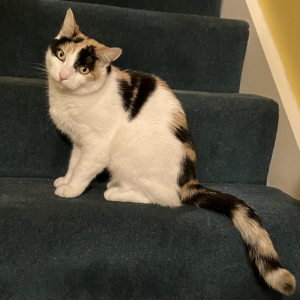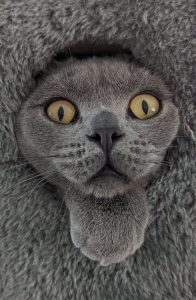Plus Women’s Prize for Non-Fiction longlist, fake biographies on Amazon, Hugo/Worldcon furore.
Hi there,
It’s yet another grey day here, after yet more rain and with more rain to come. The water meadows are full again and the river’s towpath is still flooded. Yet there are hints of spring everywhere I look – daffodils and croci flowering, the bluebells coming up, and buds on the trees. Spring starts officially in a couple of days, and hopefully it will start in spirit soon, too, when the rain eventually gives up!
Grist: Creating characters with personality
The next Grist conversation, about how to create characters with distinct personalities, will happen at 19:00 GMT on Monday 11 March on Zoom. It’s open to subscribers and anyone who wants to take out a seven day free trial. If you’d like to come along but aren’t in a position to subscribe, drop me a line by replying to this email and I’ll send you the Zoom link when it’s up.
I’m looking forward to this conversation! I’m working on new characters now for Fieldwork, and particularly need to come up with people who have some sort of fundamental character clash. That doesn’t mean that I want people who are constantly arguing, but more that the way one person thinks has to be almost alien to the other.
We’ll be talking a bit about things like the Big Five Personality Traits, what makes a character seem ‘real’, and other frameworks you can use to create characters. We’ll also talk about how to make your villains villainous – something I personally really struggle with!
Opportunity: All3Media New Writers’ Collective
The Edinburgh TV Festival’s ALL3Media New Writers Collective 2024 scriptwriting competition is open for submissions until Thursday 21 March. They’re looking for scripts from unrepresented and uncredited TV writers, and winners will attend an “intensive residential writers’ retreat” to develop their ideas and script. Entries cost £24.
The rules say nothing about not being able to resubmit a script that’s been previously rejected, so I’m tempted to send them the reworked version of Tag, because it has significantly changed since last year. Nothing to lose but £24!
Tip-top tip: A radical empathy writing exercise
Author and teacher Rachel Kadish shares the “most important writing exercise” she’s ever assigned and the impact it has had on some of her students. Without giving the game away too much, she asks her students to put themselves in the heads of characters with unpleasant views and find way to encourage the reader to feel empathy.
I find it quite hard to write truly obnoxious characters, so I’m going to add this to the list of pre-writing exercises I do, as a way to try to get under the skin of my antagonists and not only make them worse people, but humanise them as well.
Industry insider: Why don’t agents reply in order?
Loved this Twitter thread from agent Julie Crisp about how she works through her submissions, and why she doesn’t get to them in the order in which they were submitted.
I noticed on #querytracker some confusion as to why I’ve been ‘skipping’ submissions. As in that someone in November may have heard back from me and someone in September hasn’t. So for total clarity, thought I’d give you an insight into how I work through my submissions…
Women’s Prize for Non-Fiction 2024 longlist
The first ever Women’s Prize for Non-Fiction longlist of 16 finalists has been announced. The books who’ve made it on to the longlist cover topics as diverse as capitalism, artificial intelligence, Renaissance history and motherhood, according to The Guardian. The winner will receive £30,000, which for some of them will be more than they got for an advance, I bet.
The longlist is:
- The Britannias: An Island Quest by Alice Albinia
- Vulture Capitalism: Corporate Crimes, Backdoor Bailouts and the Death of Freedom by Grace Blakeley
- Eve: How The Female Body Drove 200 Million Years of Human Evolution by Cat Bohannon
- Intervals by Marianne Brooker
- Shadows at Noon: The South Asian Twentieth Century by Joya Chatterji
- Thunderclap: A Memoir of Art and Life and Sudden Death by Laura Cumming
- Some People Need Killing: A Memoir of Murder in the Philippines by Patricia Evangelista
- Wifedom: Mrs Orwell’s Invisible Life by Anna Funder
- Matrescence: On the Metamorphosis of Pregnancy, Childbirth and Motherhood by Lucy Jones
- Doppelganger: A Trip Into the Mirror World by Naomi Klein
- A Flat Place by Noreen Masud
- All That She Carried: The Journey of Ashley’s Sack, a Black Family Keepsake by Tiya Miles
- Code-Dependent: Living in the Shadow of AI by Madhumita Murgia
- The Dictionary People: The Unsung Heroes who Created the Oxford English Dictionary by Sarah Ogilvie
- Young Queens: The Intertwined Lives of Catherine de’ Medici, Elisabeth de Valois and Mary, Queen of Scots by Leah Redmond Chang
Read this: Fake biographies of dead people on Amazon
LLM-generated books popped up pretty much as soon as ChatGPT was released to the public, because scammers can’t resist the lure of a fast buck. So it should surprise no one that Amazon is now awash with error-ridden biographies of people who’ve just died, including several for Joseph Lelyveld, a former executive editor of The New York Times:
At least half a dozen biographies were published on Amazon in the days immediately following [Joseph] Lelyveld’s death. Several of them were available for purchase on the very day he died. The books, he said, described his brother as a chain smoker, someone who honed his skills in Cairo and reported from Vietnam — none of which is true.
“They want to make a buck on your grief,” said [his brother] Michael Lelyveld.
Ghoulishly, some of these books are credited to authors whose names are themselves stolen from other dead people.
Whilst we’re on the subject of so-called AI, Nature reports that generative computing isn’t just causing problems for grieving relatives, it’s causing an ecological and environmental crisis. Legislative efforts to curb these excesses would be unlikely to help enough, even if they made it all the way into law.
Read this, two: Hugo/Worldcon situation gets sticky
Four weeks ago, I mentioned that irregularities in the Hugo Award voting had called their integrity into question. Despite demands for answers from authors and fans alike, explanations were thin on the ground until a member of the Hugo admin team, Diane Lacey, released a tranche of emails which showed that the irregularities were down to Western administrators censoring the award nominations list in an attempt to “follow” Chinese laws.
Chris Barkley and Jason Sanford have done sterling work investigating the situation, and Jay Blanc has put together a comprehensive timeline of events going back to 2009. It has to be said that the problems with Worldcon and the Hugos aren’t just ones of racist idiocy. There also seem to be problems around legal structure and taxation, as well as potential Chinese sanctions violations.
Author Xiran Jay Zhao said on Bluesky that Congress, specifically the House Select Committee for Strategic Competition Between the US and Communist Party of China is investigating the situation. A government representative apparently said that they found the situation “deeply troubling” and “worthy of additional scrutiny”. Cue warnings that anyone involved should lawyer up immediately.
The problem is that Worldcon is not run professionally: Every year a new team of volunteers in a new host city takes over. And no matter how well things are handed over (and I actually doubt that they are), it’s not possible to develop the required depth of understanding of event organisation under those circumstances.
It took me eight years of organising Ada Lovelace Day to feel like I had my playbook sorted. And it took so long because we, too, were peripatetic, hosted by a different venue every year. That meant that every year I had to form new relationships with new venue staff, learn how they do things and adapt my own processes to fit.
When you have an event organised by a new team in a new venue in a new city, and maybe even a new country, every year, you simply don’t get the continuity you need for those essential lessons to be learnt. And it’s worse when your team is drawn primarily from the fan and author community, rather than from a pool of experienced event organisers.
Organising an event well is a difficult job. Ada Lovelace Day was regularly pulling in around 400-500 attendees, depending on venue, prior to the pandemic. In 2019, Worldcon was held in Dublin and hosted 6,525 people. That’s a lot of organising to be done.
This year’s Worldcon will be held in Glasgow. One member of the team, Kat Jones, was complicit in last year’s fiasco and has resigned. It’s not yet clear how the rest of the organising committee is going to respond to this, but my concern is that absolutely nothing will be learnt and that the issues with Worldcon won’t be fixed. And that should concern all of SFF fandom.
 Obligatory cat picture
Obligatory cat picture
This is a very suspicious Sparrow, who was deeply concerned at the number of strange people in her house on Sunday. She visited us twice, very briefly, just to let us know that she wanted her house back, thanks.
That’s it for this week!
All the best,
Suw
{ Comments on this entry are closed }








